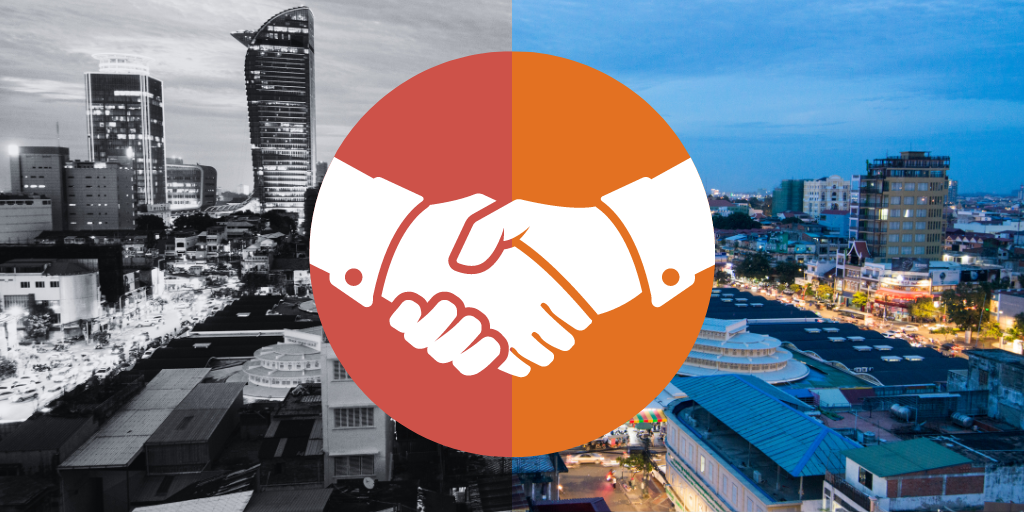
By Vicky Mancuso Brehm
This blog is an excerpt from the mini-paper “20 Years On: Reflections on Partnership”. For more details about the original “Autonomy or Dependence” research project, the changing context since 2004, and Vicky’s conclusions, be sure to read the full version.
2024 will mark the 20th anniversary of the publication of INTRAC’s research study on partnerships ‘Autonomy or Dependence? Case Studies of North – South NGO Partnerships’ (Brehm et al 2004). The publication presented the findings of research exploring the relationships between European development NGOs and their civil society partners around the world. Twenty years later, what has changed?
The research itself was the fruit of a unique partnership of ten European NGOs from Denmark, Ireland, the Netherlands, Norway, Sweden and the United Kingdom. In retrospect, what is perhaps most remarkable is how the research itself was commissioned and designed. Staff from these ten very different organisations would gather twice a year in Oxford – in person – for the NGO Research Forum. The idea of research on the complex topic of partnerships was first discussed at the NGO Forum in November 1999, and the research itself was carried out by INTRAC between 2001 and 2004.
Over the course of the four-year study, the research gathered together the perspectives of the staff of European NGOs and compared these with the experiences of a selection of their partners in Brazil, Cambodia and Tanzania. It captured how partnerships were changing as networks and alliances of Northern and Southern civil society organisations were increasingly joining together to work on common issues. It also explored the complexities of funding dynamics within the international aid system, at a time when international NGOs were engaged in processes of localisation.
20 Years On
Clearly, much has changed since 2004. Back then, the digital revolution was just beginning, and was mainly limited to desk-based email and internet. The research talked of horizontal and vertical relations, with international NGO acting as the filter between local civil society organisations in a relatively well-defined aid chain. In some ways the digital revolution has led to the democratisation and opening up of partnerships, with direct funding routes exploding through digital technology in ways unimaginable twenty years ago. The European NGOs who took part in the study now have home supporters who have unlimited access to information about global poverty, inequality, injustice and the effects of climate change. Civil society organisations in the global South generally also have much greater access to networks and information thanks to the international online world.
The UK development funding context has also changed beyond recognition, with dramatic cuts to the aid budget, sweeping changes to DfID and a shaking up of the international development NGO sector. It is hard to imagine such a close research co-operation between NGOs taking place now, and certainly not in the UK, in the current post-Brexit climate. International NGOs across Europe are much more likely to engage directly with academic organisations, located both ‘North’ and ‘South’, or have their own in-house research capabilities.
Despite the changing times and contexts, the original research recommendations – for INGOs and southern civil society alike – remain relevant. The language of development debates has changed; however, the underlying issues remain strangely similar. The recommendations are echoed in INTRAC’s recent event and blog series on modelling progressive funding.
In many ways the world has become increasingly unstable over the past twenty years, and perhaps development NGO funding has become even more driven by responding to immediate crises and conflict.
The ingredients of effective partnership remain the same: trust, mutual understanding, effective, inclusive communication and, most importantly, a vision for long-term capacity strengthening. The digital revolution presents many opportunities, but there are also some risks inherent to collaborating from a distance; sometimes there is no substitute for well-planned, in-person visits in order to really understand the context. The challenges remain for partnerships to remain rooted: giving voice to those who are ignored on the international stage and having a long-term perspective to address the underlying causes of poverty and injustice.
Vicky Mancuso Brehm has worked in development for over twenty years, firstly as apractitioner and then as a researcher and writer on a range of development themes. She is a member of the INTRAC network, and has worked on a number of projects including the three-year project titled The Listening Zones of NGOs (2015 – 2018). For anumber of years she managed INTRAC’s NGO Research Programme. She has also advised development organisations in the UK, Latin America, Europe and North Africa.